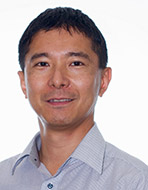University of Reading Cookie Policy
We use cookies on reading.ac.uk to improve your experience. Find out more about our privacy policy. By continuing to use our site you accept these terms, and are happy for us to use cookies to improve your browsing experience.

Adipose-Derived Stem Cells: Potential for Metabolic Reprogramming
- Title:
- Adipose-Derived Stem Cells: Potential for Metabolic Reprogramming
- When:
- Wed, 2. November 2016, 13:00 h - 14:00 h
- Where:
- N3.23, University of Reading Malaysia - EduCity@Iskandar
- Category:
- Public Seminar
- Guest Speaker:
- Dr Shigeki Sugii (Singapore Bioimaging Consortium, A*STAR)
- Event Custom Field 2:
- Dr Wee Kiat Ong (School of Pharmacy, University of Reading Malaysia)
- Subject Area:
- Pharm-Health
Abstract
Adipose tissue is an expandable and readily attainable source of proliferating, multipotent adipose-derived stem cells (ASCs), holding great therapeutic potentials. However, more work is necessary to fully understand biological properties of ASCs and explore novel approaches for using or targeting ASCs in a direction to make them suitable for therapy. By comprehensive image-based high content screening, we identified novel fat-depot specific cell surface markers, CD10 and CD200, which can predict how well ASCs can differentiate into mature functional adipocytes. Through another study on whole genome-wide gene expression analyses, we identified novel pathways of retinoid metabolism and oxidative stress. High level of retinoic acid negatively affects early stage of adipogenic differentiation of ASCs, which can be reversed by antagonism of retinoic acid receptors. Similarly it was found that high oxidative stress associated with ageing or visceral obesity affect ASC's ability for differentiation, proliferation, migration and/or senescence. Treatment with anti-oxidants was found to be effective in reducing reactive oxygen species and improving these ASC properties. Collectively, these results suggest that stem cells can be cellular targets for improving quality of fat tissue and adipocytes through use of specific cell surface markers, modulating RA pathway, or reversal of oxidative stress. These molecular markers and factors may be useful for future metabolic reprogramming studies in different approaches: bioimaging, screening for improved adipocyte development, or reprogramming into induced pluripotent stem (iPS) cells.
 |
Biography |
- Admission is free.
- Tea break will be served at 3:00 pm.
- UoRM staff RSVP by responding to the internal event invitation.
- All are welcome, RSVP by 28 October 2016.
Toll free:
+1800 18 6867
Tel:
+60 (7) 268 6205
WhatsApp/Mobile:
+60 (16) 7725 400
(click the WhatsApp number to contact us immediately)
University of Reading Malaysia
Persiaran Graduan, Kota Ilmu, EduCity, 79200 Iskandar Puteri, Johor, Malaysia.
Toll free:
+1800 18 6867
Fax:
+60 (7) 268-6202







